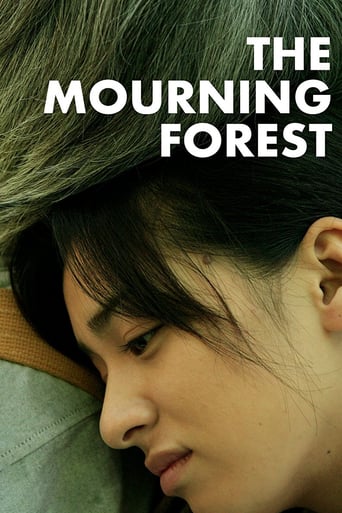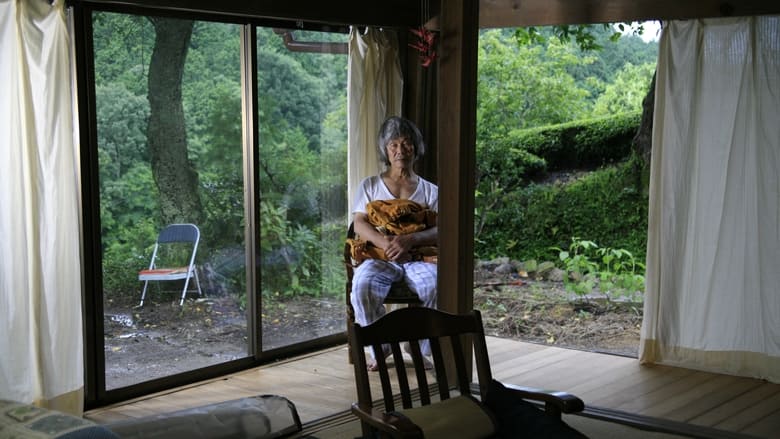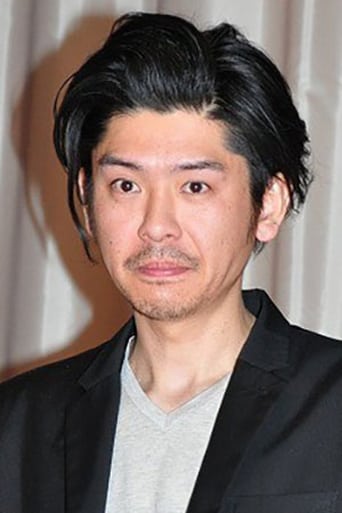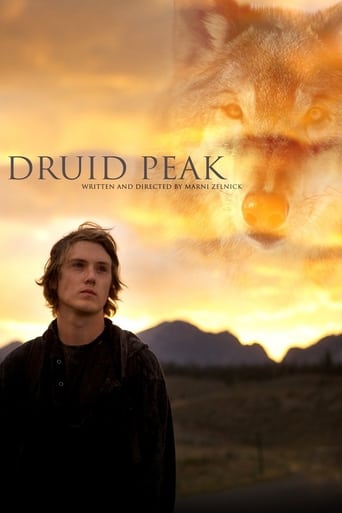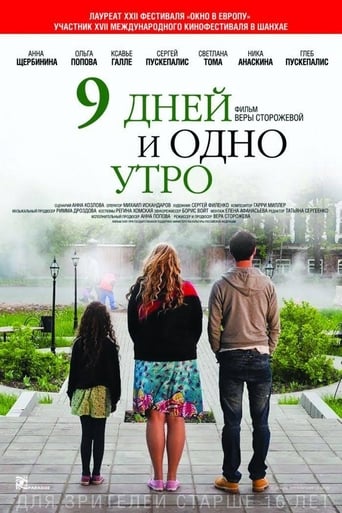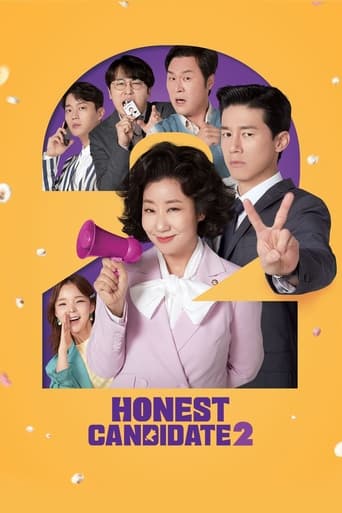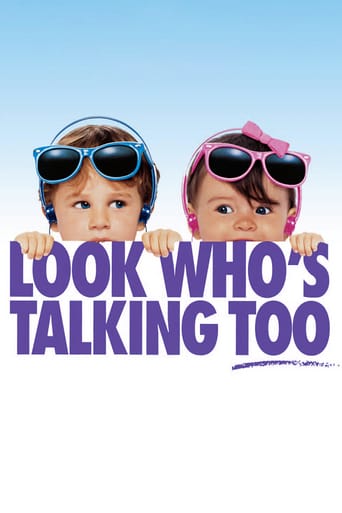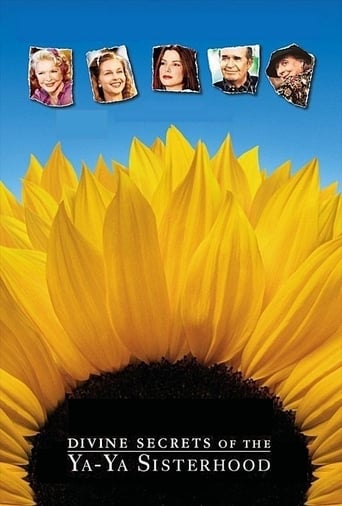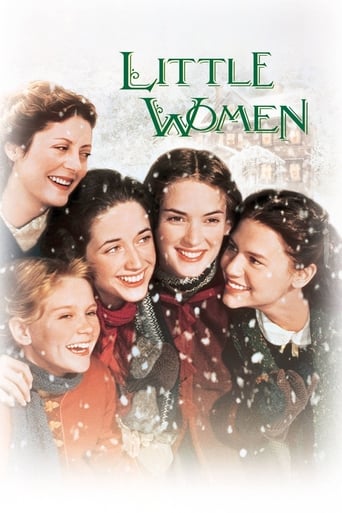The Mourning Forest (2007)
A young woman working at a retirement home takes an elderly man living there on an excursion into the countryside, but the two wind up stranded in the titular forest.
Watch Trailer
Free Trial Channels
Cast


Similar titles
Reviews
Let's be realistic.
Too much about the plot just didn't add up, the writing was bad, some of the scenes were cringey and awkward,
In other words,this film is a surreal ride.
Blistering performances.
Machiko is a caregiver at a nursing home, Shigeki is one of the residents. Machiko is grieving the (apparently recent, though it's unclear) death of her young son, while Shigeki still mourns the loss of his wife, 33 years earlier. Their relationship to each other and to their grief during an excursion when they get lost in the woods. Their bond is complicated by Shigeki's dementia, whose often childlike behavior surely resonates with Machiko. It's an interesting, contemplative and spiritual exploration of grief with some lovely moments. Without spoiling anything, a charming early scene of Shigeki at the piano takes on a heartbreaking twist. Later, as Machiko desperately tries to control his reckless quest through the forest, we get hints of how she lost her child and the unresolved feelings she has.Although there are gorgeous scenes (the two playing amidst rows of geometrically carved hedges, for example) the hand-held cinematography isn't doing the film any favors. It may have been more appropriate in the latter half, as their journey takes them deeper into the wild. But the shaky camera-work throughout the entire movie adds nothing. Maybe it just comes naturally to Naomi Kawase, whose work is primarily in documentaries (although she's no stranger to drama).I don't know if this is an accurate representation of a Japanese senior facility, or an idealized one. I know that respect for elders is more ingrained in their culture. The home certainly appears to be a great deal more comfortable, dignified and serene than what we have. Perhaps it's a very expensive one, though we get no hints that Shigeki is particularly wealthy.I thought it could have explored its themes a bit deeper, and there are the aforementioned camera issues, but overall I liked the film a great deal. It ends on a strikingly beautiful note. I'd like to see more by Kawase.
The story is deceptively simple, but the psychological depth of the characters and the deep symbolism captured in the everyday scenes of rural Japan are astounding. This movie never gives you too much, never lets you take anything for granted, never lets you have a clear resolution. Some of the symbols, I admit, may not be as resonant with non-Japanese audiences, and lack the emotional weight that they'd give someone familiar with Japan. The subtle changing of the foliage from early to late summer, the association of summer with the return of spirits, the idea of "mogari" as an ancient mortuary ritual of "temporary burial" that implies a return from beyond-- all of this is set far in the background of the central story of two grieving people, who, despite so many other differences between them (old/young, caregiver/cared for) can find some sort of healing connection with each other. Perhaps this is why some think it is boring. They're following the movement of individual characters rather than the whole movement of the story. The story moves from the close-shot, narrow confines of life in the old folks home, to the field (cultivated nature) in the chasing scene, to the forest (wild nature). Along the way, the psychological strain of grief becomes gradually more wild, more natural, and more capable of finding meaning, however incomprehensible. Watching "mogari" requires an eye for these subtle changes, which the actors portray compellingly, (almost as if it was a documentary), as well as a deep willingness to empathize with the characters. If you can do this, the movie will take you on an emotional roller-coaster throughout. Perhaps that's just part of the nature of grief.
This movie is so depressing most of the way and I fell from the grace of its reincarnation theme at the end. I was so alone when the casts are crying and yelling. The screenplay and the direction may lack some fatal information in this movie, but I had to 'understand' this because it won the Grrrrrrrand Prix at the Cannes.Erratic is the word. I had no idea why suddenly Machiko somehow eagerly chased to catch Shigeki after he fell down from the tree. Was it because Shigeki's mischievous action ignited Machiko's frustrated sadness (her son's death) and Machiko agreed to burst it out with him? In my eyes she hadn't been such frustrated or, saying more accurately, she looked good at hiding her own secret emotion. If I should understand and recognize her action only by watching that poor explanation, well that must be something like "sympathy without a cause", which I hate most.The latter half of the movie is filled with Machiko's sobbing call "Shigekisan, Shigekisan". It might imply her hidden cry to call her late son or her husband, but to me that sounded too self-indulging. The people on this movie might have extremely sad experience which an ordinary man like me can't even guess. Actually the movie has some snobbish impression due to its lack of explanation. Perhaps Machiko had divorced after her son's death and working for her own. OK, it must be hard. But how hard? It's too bold if the director wants me to sympathize with her sadness, again, only by that little information.Remember, the former half of most Kurosawa movies are boring as hell. Even for this Japanese man, his b&w "classics" are way too aged and often boring. But that boring pile of information gives the roles their lives. They become even more real than real people when the latter half starts. That's where all the story begins. We need that to get along with the director's "lies".It's not even the Eastern Zen style this movie wears. I know some Japanese movies have fine essence of that kind (eg. Ozu's), but this one only lacks what is needed to be there. It's not even poetic. In poets, the lines themselves conveys powerful meanings as well as the spaces between the lines. If the director said the motivation to make this movie was her grandmother's senility then she should know not all grandmother is senile or not every son & daughter realizes its possibility clearly. She may want people to realize that but she did little thing to make that happen.Some nice people acclaim for its cinematography. The scenes might be clean or green but you know what I'd say. Instead, I'd like to comment on its sound mixing. At first I thought it was at the director's will when I couldn't hear the main casts' voices clearly and the sound of people or the nature surrounding the main casts were too loud. But it wasn't fixed until the end. I was too tired to see the next round (the same director's "Sharasouju" for which I waited more hopefully) when the movie was over. Or was it the cinema theater's fault?I've been saying sh*t on this movie, but there is one big suspension. How do women think about this female director's movie? According to the rating breakdown on IMDb, obviously women appreciate this movie. I can't help imagining there is some kind of emotional code in this movie, of which only women can share without any further explanation. My comment can be nothing short of the same old "men's lack of understanding". But still.
Saying honestly, when the movie ended, I felt tricked. As the two people stray off into the woods, I felt anxious on how they are rescued; felt anxious with Machiko, who without thinking follows Shigeki, an old man with dementia; and I thought 'Hey when you get lost in mountains, you should even go up to the summit '. But actually the director is indifferent on such thrills. She expected the audiences to focus on the imagined scenery of the dementia patient and the care giver. That was why I felt tricked. Though not explained clearly, the reason why Machiko came to the care house, which is a renovated old farmer's house in mountainous village, might be a death of her son. Her husband blames her that if she did not loose her clutch of her son the son would have not died. One day when they had calligraphic exercise, Machiko wrote her name. Accidentally this made Shigeki recall his wife's name Mako. Mako died 33 years ago. Since then Shigeki lived in memory of Mako for very long years. Since then, mental connection between Machiko and Shigeki gradually grows.One day, Machiko takes Shigeki to visit Mako's tomb by car, but the car runs off on the way. It is so remote that mobile phone does not work to call for help. But from the place, Shigeki walks into the woods heading 'Mako's tomb', and Machiko has no idea but to follow him. Since then many things happen. At night, Shigeki feels chilly due to fatigue and coldness; Mako warms him naked. The next morning, Shigeki is going across dangerous river; Mako imagines it suddenly floods, and cries and cries until Shigeki comes back. This recalled me 'Sanzu no kawa', an imaginary river that separates the world of quick and the dead. Finally, Shigeki arrives at the destination; he pulls out notebooks he wrote for 33 years, perhaps filled by the memories of Mako; and he digs a hole by hand; then he peacefully sleeps in it. Besides him, Machiko feels healed from all of her past troubles. The motif in the movie is heavy: care-giving, death of child, death of wife, and burial. As my mother is in Alzheimer disease, I had strong empathy on Shigeki. I think many of the audiences have these kinds of experiences. The message from the movie is, as I received, to have real feeling of life and healing, beyond getting old and death. This attempt is, however, not very successful, because, as I wrote in the beginning, the audiences may feel tricked at the end.

